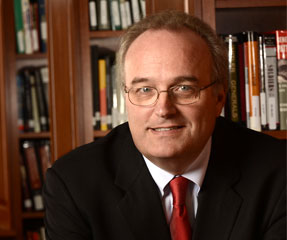 A week ago, research firm ITHAKA S+R published the results of its fall 2015 survey. More than 100 American higher education administrators and experts were invited to join a panel of advisors who have been asked to participate in two semi-annual surveys as part of their advisory roles. The Fall 2015 survey examined initiatives and strategies to improve degree completion rates, the quality of student learning and college affordability, and respondents evaluated and rated the initiatives and strategies.
A week ago, research firm ITHAKA S+R published the results of its fall 2015 survey. More than 100 American higher education administrators and experts were invited to join a panel of advisors who have been asked to participate in two semi-annual surveys as part of their advisory roles. The Fall 2015 survey examined initiatives and strategies to improve degree completion rates, the quality of student learning and college affordability, and respondents evaluated and rated the initiatives and strategies.
The 96 survey participants rated the current state of U.S. higher education slightly better than neutral. Degree completion, student learning quality, and affordability were rated as roughly equivalent in their importance to achievement in order for the sector to improve. Guided pathways and proactive advising strategies were deemed to have the most potential for improving degree completion with average responses of 5.71 and 5.93, respectively, out of 7. Adaptive learning technology received the nod for having the highest potential to improve the quality of student learning (mean response 5.60), while systematic assessment of student learning was viewed as a high- potential intervention to improve learning (mean response 5.15).
Competency-based education (mean response 4.95) and tech-focused faculty development (mean response 4.90) were not far behind assessment, but only ranked as a top- two initiative in 30 percent of the responses, versus 52 percent for systematic assessment. Unbundling college courses for credit and other services was selected as the activity with the highest potential for making college more affordable. Institutional risk- sharing was second, and income-based loan repayment plans last. Universal free tuition for two years drew widely contrasting support, with participants distributed across the entire range resulting in a mean response of 3.93 out of 7, but with 23 percent of respondents rating it at the top, and 29 percent at the bottom.
Respondents were asked to list up to three obstacles for successful innovation on college campuses. A total of 267 obstacles were submitted, organized in six common themes. Institutional culture and structures (cited by 80 percent of respondents) was the most frequent selection for obstacles. The next category, funding and resources, was cited by 45 percent of participants.
Two thirds of the panelists were administrators at colleges and universities, with approximately 57 percent from public, 40 percent from private, and 3 percent from for- profit institutions. Those who were not administrators were affiliated with foundations, research institutes, or associations. On average, they reported having 28 years of experience in higher education and 80 percent reported having taught at least one undergraduate course in their career.
Given that college and university administrators comprised nearly two thirds of the advisory panel, their responses were very similar to my own perspective. It is not surprising that some of the projects, such as income-based loan repayment and universal tuition, were last even though there are politicians in America that support these initiatives. I believe it’s important to remember that the average length of service for the administrators surveyed was 28 years and that politicians running for office are interested in votes and not necessarily in the best initiative that will improve college completion. This was an important benchmarking survey, and I look forward to reviewing the results of the next one.











